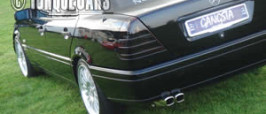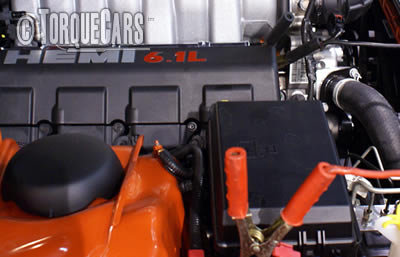Reduce your motoring expenses
"Cutting corners on car costs."
With the ever increasing challenge of making ends meet we will look at some ways you can make some serious monthly savings by reducing your monthly car running costs.
In this article we will look at the following topics.
- Change driving style & save fuel
- Avoid depreciation
- Essential maintenance
- DIY servicing
- Choosing the right car
Don't bankrupt yourself with high motoring expenses follow our tips to save some serious money right now.
Driving style
One of the major motoring costs we face is fuel. As the fuel prices increase we start to feel the pinch even more.
By altering your driving style you can dramatically reduce your fuel consumption.
- Avoid braking - this wastes forward momentum and with good anticipation you should be able to keep the car rolling easing off the throttle in good time
- Heavy acceleration wastes fuel. Most cars give 80% of their optimum power at a 25% throttle position. It's just not worth wasting the extra fuel.
- Hard cornering puts a lot of extra wear on the tyres, and, while you want to avoid slowing up too much you should try to avoid hard cornering.
- Short journeys really do kill your engine. The acids that build up and extra fuel burned during the warm up phase are very detrimental. It can cost you a lot of money in the long term.
Avoid depreciation
 The largest cost for most motorists is depreciation. This is the amount of the cars value you lose whilst it is in your ownership. For most cars purchased from new you are looking at a loss of 50% of the cars purchase price! Even older cars can lose large chunks of their value each year.
The largest cost for most motorists is depreciation. This is the amount of the cars value you lose whilst it is in your ownership. For most cars purchased from new you are looking at a loss of 50% of the cars purchase price! Even older cars can lose large chunks of their value each year.
Buy the car out of season and sell it in season. So buy 4x4's in summer time and sell them in the middle of winter. The opposite is true of sports cars and convertibles where you are better off buying them in the winter and selling them in the summer time.
Older cars depreciate less. Think of depreciation as a percentage of a cars value, so the lower the purchase cost the less you will lose in depreciation.
Classic cars and rare cars can actually increase in value or hold their value well.
Some new cars with very long waiting lists can hold on to their value really well if sold within 6 months. This is always a gamble as most car makers will look to meet the demand with supply.
When selling and buying follow our tips to maximise your advantage in the transaction.
Essential maintenance
 It is a false economy to skimp on servicing. Delaying a brake pad replacement can cause wear to the discs costing a lot more.
It is a false economy to skimp on servicing. Delaying a brake pad replacement can cause wear to the discs costing a lot more.
Oil changes do not cost that much and if performed every 6 months you can virtually eliminate engine wear and tear. Even failing to top the oil up can dramatically reduce the engines life time.
A regularly serviced car will run more efficiently than a neglected one and less fuel will be wasted.
There are a few things you can do to your car to make it more efficient. A remap for example can save fuel. Converting the engine to run on LPG can lower your running costs.
DIY servicing
Doing your own servicing can save a lot of money on garage bills.
It often pays to buy two lots of servicing items and negotiate a discount on them. You'll typically need a set of spark plugs, air filter, oil filter, sump washer, engine oil and sometimes a pollen filter.
The key is getting the right tools but this is a one time investment and most drivers will still save on the average garage servicing bill on thier first DIY service.
Choosing the right car
Don't spend 10,000's to save 100's per year on fuel costs, the depreciation of the car will more than outweigh any fuel savings you are likely to make.
We don't recommend you buy a car to save fuel. You should only change your car if the current running costs are too high.
Things like brakes and tyres all add up and on some cars a set of tyres can set you back a month or two's wages! Clutch, cambelt and other major expenses come in every 5-7 years so it's worth buying a car after these are done and selling just before they are due to be done again.
Use our MPG comparison tool to compare the annual fuel costs of two cars but note that it is rare to actually achieve the manufacturers quoted MPG figures in day to day driving.
Buying an older car with lower mileage ensures you get reliability without having to worry about depreciation.
Do your research carefully. Factor in a set of tyres, brake pads and brake disks every 2 years when you work out your ownership costs. Find out the annual fuel consumption and costs using our MPG calculator
Please Check out my YouTube channel, we're regularly adding new content...
PLEASE HELP: I NEED YOUR DONATIONS TO COVER THE COSTS OF RUNNING THIS SITE AND KEEP IT RUNNING. I do not charge you to access this website and it saves most TorqueCars readers $100's each year - but we are NON PROFIT and not even covering our costs. To keep us running PLEASE Donate here
If you liked this page please share it with your friends, drop a link to it in your favourite forum or use the bookmarking options to save it to your social media profile.
Feedback - What do You Think?
Please use our forums if you wish to ask a tuning question, and please note we do not sell parts or services, we are just an online magazine.
Help us improve, leave a suggestion or tip
Please watch this video and subscribe to my YouTube channel.

 Click to accept YouTube Cookies & Play.
Click to accept YouTube Cookies & Play.